#LITERARY FICTION
Text
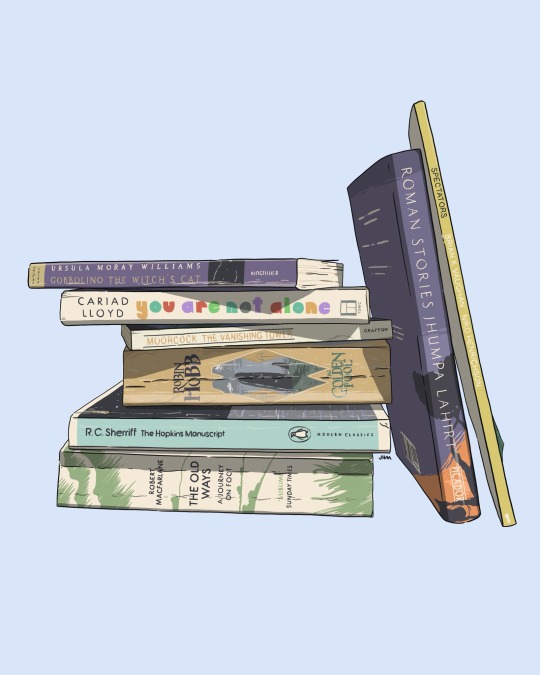
What I read in March!
Lots of variety, one kids book read to my daughter (I read more than 1 a month to her but this was the only new one!), some fantasy, a brilliant, brilliant sci-fi book where the sci-fi part isn’t important (everyone needs to read everything by RC Sherriff!), a book about walking, a great Jhumpa Lahiri short story collection and a comic you can read free online at Substack.
Also read Carisa Lloyd’s book about grief, coincidentally around the 7th anniversary of my dad dying- I found it enormously helpful, her podcast is great too, as a rec for anyone else in the club.
What did you read last month?
Instagram / Shop
#my art#artists on tumblr#books#booklr#illustration#bookstack#fantasy books#robin hobb#Cariad Lloyd#jhumpa lahiri#literary fiction#fiction books#tbrpost
167 notes
·
View notes
Text
Saturday, December 2nd.
Sylvia Plath.
It's a dark and cold day in December and so, naturally, we are left with no choice but to celebrate the sublime and singular talent of Sylvia Plath. That means two entire days of quotes, pictures, and exceptional memes of a literary, existential flavor.
Happy reading, folks. Use your weekends well.
#today on tumblr#sylvia plath#sylvia plath quotes#sylvia plath poetry#the bell jar#bookblr#books and reading#books#reading#literary fiction#girlblogging#quotes#classic literature
254 notes
·
View notes
Text
"And I think for that reason I find fan fiction especially a really interesting and really rich mode of expression that, of course, a lot of people look down on 'cause it's - you know, it lacks a certain literary polish. But I respect that about fan fiction. Like, I respect that fan fiction is so much the product of a compulsion, of a yearning, that it almost forgoes all of these pretensions of polish, of quality, of sophistication. And in that sense, for me, there is something that's revealed at the heart of fan fiction that I think is essential to all great literature, which is this desire to put yourself in the same space as the transcendental, you know, to almost touch the hem of it without really quite grasping it."
The loneliness of the central character in Esther Yi's 'Y/N' is universal, an interview with Esther Yi (NPR)
841 notes
·
View notes
Text
Not sure what my motive is here, but . . .
The results will not affect which books I post about, because I actually have to want to read them, but I'm dying to know who likes to suffer!
#please i really wanna see the discourse!#book recommendations#queer books#polls#queer#literary tropes#literary fiction#fantasy books#romance books#science fiction books#historical fiction#books#queer community
212 notes
·
View notes
Text

Delia Owens, Where the Crawdads Sing
#delia owens#where the crawdads sing#kya clark#dark academia#dark academia quotes#literature#literary fiction#quotes#writing#book quotes#taylor swift#carolina#taylor swift carolina
4K notes
·
View notes
Text
i think the best thing about american psycho is actually how pathetic patrick bateman is actively characterized as and portrayed. he’s insecure, none of the other characters take him seriously, he has to kill people to compensate, he gets visibly triggered over every tiny inconvenience, he’s perceived as a sniveling spineless prick. the psycho in american psycho, who we’re not sure actually exists, is the intimidating sigma male patrick wants to be but is just not. and it’s been thirty years since incels have been misunderstanding and misappropriating this aspect of his character, which adds another layer of humor and harrowing concern to the debacle.
#american psycho#patrick bateman#bret easton ellis#literary fiction#books#books and literature#litfic#book blog#horror books
403 notes
·
View notes
Text
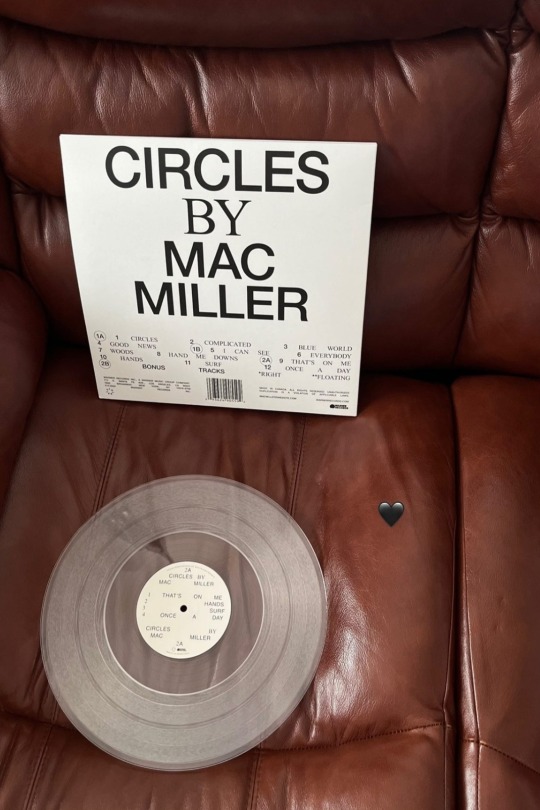
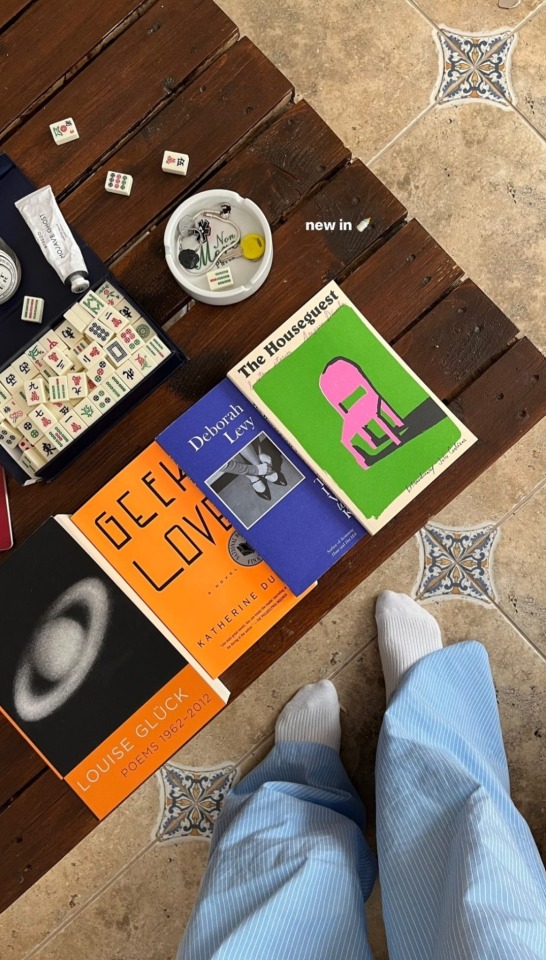
#haul#literature aesthetics#books#book#bookish#bookblr#bookworm#bookstagram#dark academia#booklover#books and libraries#photo diaries#aesthetic#study space#study hard#study tips#study#college student#studyblr#lifestyle#retro#vintage#thrift#literary fiction#contemporary#vinyl#music#productivity#alternative#media
84 notes
·
View notes
Text
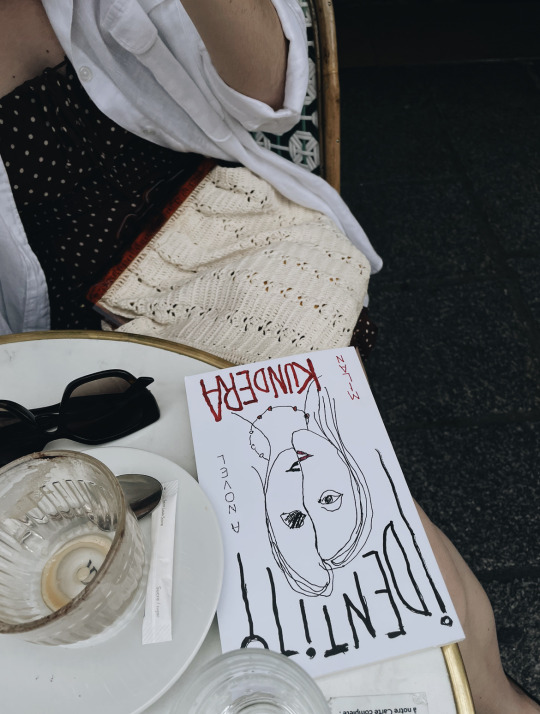
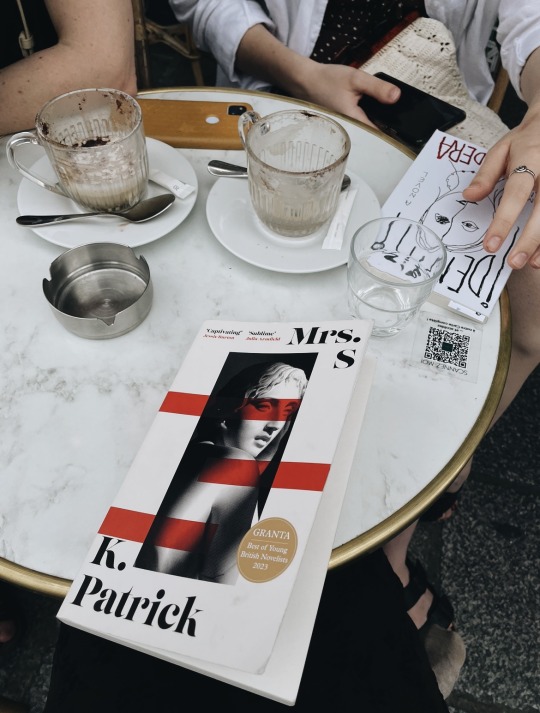
reading in Paris
325 notes
·
View notes
Text
“book lovers” don’t love anything about books and it’s weird (or, defending classic novels)
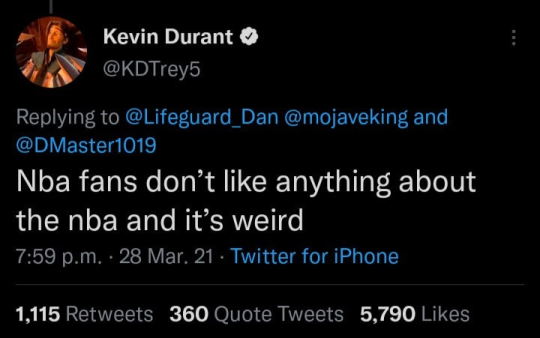
kevin durant is talking about basketball fans but you’ll understand exactly what he means in a much broader sense if you’re on the basketball side of twitter and immediately recognize the mindset he’s describing — that it’s a sentiment that isn’t really about basketball fans at all, but about how we engage with all sorts of things especially in the social media era. but this tweet is just table-setting. the important thing here is that the rest of this post, about many writers and english teachers and book bloggers and overall people who describe themselves as book-lovers on the internet, can be summed up as a caption to this screenshot that just says “same energy”.
same energy. many writers and supposed booklovers on the internet actively dislike and disparage most literature. and actively dislike and disparage the entire literary tradition of the novel, and the novel as a form, and all the tools or frames of engaging with art, and many of the writers or novels known for beautiful writing, and the books that made up the history and development of the medium and inspired so many more of its writers and inspired stylistic shifts, so much fundamental context for any kind of novel… i’m losing my thread here but the point is, many people who describe themselves as book-lovers, many of them authors themselves or english teachers, will proudly and vocally announce their dislike and hatred of so many classic novels. often what seems like almost all of them.
and will not just proudly say so, but won’t shut up about it. and will bring it up constantly among themselves. it’s not a one-off thing either, this comes up con-fucking-stantly in what feels like almost any conversation about literature. often fully unprompted. and will somehow pretend it's an original insight and that they're being bold and brave and controversial and starting a conversation for saying it, when it's all been discourse every two months for as long as an online commons has existed, and when we all know they got that take from endless cycles of online discourse, and when the reason they say it is because they know people will agree with them, because we've seen how that plays out a million times already, b e c a u s e so many other people who like to imagine themselves as brave bold original thinkers for having picked up that opinion in a previous online cycle themselves will respond enthusiastically through some kind of collective pretense that it's a new conversation.
that's part of it too, everyone involved in that discussion collectively performs some kind of amnesia where this is a take they're hearing for the very first time, and speaking a truth they've always thought but never felt like it was socially acceptable to say. because that way, you get to feel like an original critical thinker without having to do any critical thinking, or to feel like you have a superior understanding of a piece of media without having any media literacy. and you get to feel some self-flattery about your superior insight for having the originality and courage to believe what is now a pretty mainstream view — maybe not mainstream among literati, but absolutely mainstream in the online commons, enough that you know many people agree with you already because you've seen the same agreement and mutual self-congratulation play out in a million online cycles already.
(it feels very disingenuous. maybe it's not consciously and intentionally disingenuous, maybe it's just a lack of self-awareness, but it's like.. you know how we could say a great joke at a family function that we once read on the internet, and they wouldn't know and would just think you're just that witty for coming up wiht it? like that, except we're all on the same internet and we'd all read the same joke already but we all have to pretend we'd never heard it before so we don't break kayfabe, because that way you can convince yourself that nobody else had seen it before and they all thought you were witty. everyone just performs the exact same roles every time discourse about any given book happens every 2-6 months on the internet. next time, can we all at least not pretend like this isn't the 26th time we've seen this conversation and spare all the "FINALLY someone said it!" "someone needed to start this conversation!" schtick? is that too harsh?)
but anyway. the thing is, alright. if you think jane austen is boring. and that the great gatsby is overrated. and also that the bronte sisters' books were super problematic (bc heathcliff and rochester with mad wife in the attic are both kinda misogynistic). and also that hemingway is boring posturing. and catcher in the rye is overrated (because the abused kid processing his brother's death is "annoying"). and that shakespeare is too old english style to be worth reading.
and that only pretentious wannabes read tolstoy or dostoevsky. and as for ursula k le guin or isaac asimov or philip k dick, sci-fi is a boring genre. and that nabokov is weird and kinda suss, and kundera seems like he has an ego and philosophizes too much (will claim to have liked one hundred years of solitude tho bc that’s still seen as fashionable). and only pretentious hipsters read david foster wallace or pynchon or franzen. none of them seem to remember that edith wharton exists. some quote george eliot as another white man, or just don’t mention her at all.
and never even mention chinua achebe or toni morrison or james baldwin or arundhati roy. and — this is something i actually saw being said on twitter in conversations between english teachers, authors, and people who call themselves book bloggers — say "kazuo ishiguro is only read by white people who want to feel smart but is actually full of weird stuff" while including a screenshot from a haruki murakami novel. even though ishiguro and murakami write very different books in very different styles, one has lived in the uk his whole life and his best known books are all set in the uk while the other is a japanese pop writer, and they have very little in common aside from a kinda sparse prose style and being ethnically asian…
at that point, do you even like literature?
having a few or couple of those opinions is one thing, people’s tastes vary and i don’t expect everyone to love every supposed literary classic, i’ll admit to not enjoying ‘a separate peace’ at all — but so many writers online proudly announce pretty much all of this. and it’s usually not even with specific justification about the specific author or book, just broad strokes commentary. a lot of it seems to be half-remembered from bored high school years, books where they barely remember what even happened during them but retained their opinions on them with full unwavering confidence, a lot of the comments that sound like someone who’s only vaguely heard of the book and not even to the level of reading the wikipedia page to check, who misunderstood the main themes and seems to not have tried to critically engage with it at all.
honestly, i know most people online's clever opinions about books are just regurgitated from the internet. i’m pretty convinced this applies to 80% of all mentions of the catcher in the rye online, for example. fuck it, here’s the screenshot of the ishiguro/murakami incident i mentioned a couple paragraphs back:
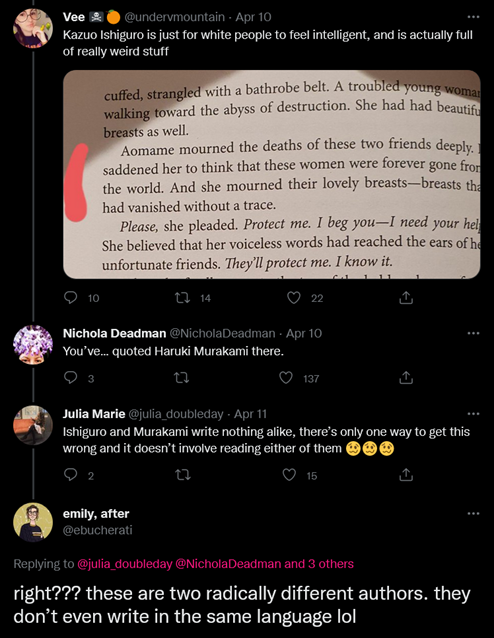
how is this not, really, just the hardcore marvel-only fan types of the book world? people who aren’t happy with their movies basically being so dominant they’ve outcompeted every other kind of movie in cinemas and make a trillion dollars, but also demand they get the critical appraisal of the godfather, and that martin scorsese praises them without reservation as high art, and also that they should get the same kind of respect and cachet among film artsy types as people who love all the classics of cinema or whatever. it’s the exact same mindset.
in a way, i feel like a lot of how gen x-millennial-zoomers are about art is like a relatively harmless version of how maga boomers are about society, in the sense of.. having the smallest expectation made of you or the smallest amount of effort/inconvenience asked or anything that isn’t super familiar exactly the way things were unchallenging or anyone not praising you for all of it is some kind of horrific thing that shouldn’t be allowed. i think this is a pretty terrible cultural development, as those go. its some kind of social collective self-infantilizing, all propped up by a whole circle of mutual reflexive defensiveness at any criticism of this way of being. and it’s a bit stressful saying all this knowing that there’s a pretty good chance that if the shoe fits, the response is likely not going to be a careful consideration — i mean, why would this somewhat incoherent and sloppily edited rant by some random on the internet warrant a level of careful consideration that people are proud of denying f scott fitzgerald or toni morrison?
its normal to have to put in a little tiny bit of effort and accommodation to access great things, like good art or a functional society. it’s good, even. it’s part of what makes life beautiful. there’s so much beauty to be found in art that you have to sit with and dwell on and read criticism of and analyze to find more and more layers of beauty, to find complexity, to develop a personal relationship between yourself and the art that’s so much deeper than just superficial infatuation because it’s something you built. you cant be mad about that expectation and demand praise for not following it. it’s fine to enjoy art on a simple and escapist level, but that’s not all that art is meant to be. insisting that it’s all that art has to be, or that expecting art to also be more is somehow morally wrong or elitist, is just philistinism and i’m only being a little bit hyperbolic when i say the normalization of that understanding of art is detrimental to society.
art is also meant to be something where you understand and respect the amount of craft and learning and attention to detail and thought and transcendent talent goes into making beautiful things, and you want to engage with it to the level that it deserves, to peel through the layers. to see how you interpret and find meaning and emotion in it based on the person you are at that moment in time, the most salient experiences and thoughts as you encountered that piece of art, the setting, the memories, an understanding that you can look back on and see change as you yourself change. to create an emotional correspondence with a mind you’ve never met, one that might have died decades ago and that lived in a world unimaginably different from your own but shared so many familiar thoughts and feelings and hopes and fears.
that carried the torch of a beautiful tradition of the form — the novel from miguel de cervantes through flaubert and tolstoy into the novels of the lost generation, the development of internal life as an art form in a way that’s unique to the medium and that can’t be shown in a play or film, the transition from novels as storytelling similar to a play in its earliest days to novels coming into its own as a unique art form that allows the reader to truly inhabit someone else’s mind, to think their thoughts and feel their feelings, in a way you can’t get from anything else. not from visual mediums, where you can see the action but can’t inhabit the inner minds of characters, only infer it. not from short stories, which even at their most introspective and internally oriented still don’t give you enough time.
i'll quote milan kundera from the art of the novel here, about what i mean when i talk about the development and tradition of the novel, and what only the novel can do: "Since its very beginnings, the novel has always tried to escape the unilinear, to open rifts in the continuous narration of a story ... Through its own logic, the novel discovered the various dimensions of existence one by one: with Cervantes and his contemporaries, it inquires into the nature of adventure; with Richardson, it begins to examine "what happens inside," to unmask the secret life of the feelings; with Balzac, it discovers man's rootedness in history; with Flaubert, it explores the terra previously incognita of the everyday; with Tolstoy, it focuses on the intrusion of the irrational in human behavior and decisions. It probes time: the elusive past with Proust, the elusive present with Joyce. With Thomas Mann, it examines the role of the myths from the remote past that control our present actions. Et cetera ..."
[my note: interrupting kundera here to note that all that's just up to pre-war early 20th century. there's still novels by the lost generation shaped by world wars and the great depression attending gertrude stein's salons in paris, the influence of fitzgerald and hemingway as branches of prose style, william faulkner and southern gothic, stream-of-consciousness and feminism with virginia woolf, chinua achebe and jean rhys with postcolonial inversions of older classics, magical realism with gabriel garcia marquez and salman rushdie and the like, big self-referential playful intertextual postmodern novels like david foster wallace through the weirdness of the 1990s, to this day there's still evolutions in form like jennifer egan with 'a visit from the goon squad', which such a great book by the way but i digress.. all that came after what kundera described here! and so much more that i'm likely forgetting right now]
but anyway, continuing kundera: "The characters in my novels are my own unrealized possibilities. The novel is not the author’s confession; it is an investigation of human life in the trap the world has become ... The novel has an extraordinary power of incorporation: whereas neither poetry nor philosophy can incorporate the novel, the novel can incorporate both poetry and philosophy without losing anything of its identity ... it can blend philosophy, narrative, and dream into one music ... it has [the ability to] marshall all intellectual means and all poetic forms to illuminate “what the novel alone can discover”: man’s being. ... I’ll never tire of repeating: The novel’s sole raison d’être is to say what only the novel can say."
i think that's very cool. i love thinking about what the novel can do and all the possibilities offered to me by its presence and what only the novel can do. when you’re reading a novel, the same little voice in your head that speaks out your own thoughts are speaking out someone else’s thoughts; the same body where you feel sadness or tension or excitement at events in your life, through the power of imagination, replicates those same feelings in you as you read someone else experience them. you get to understand situations and develop insights that you never could’ve if you’d only had your own experiences to rely on, because you could briefly borrow the direct experiences and emotional responses and realizations of others. having that lightbulb moment as you piece together some insight that the writer had laid out the breadcrumbs and guided you to discover. where things that wouldn’t have gotten through if you’d just been told it in bullet points become things you understand intimately because on some mini scale, in that brain-in-a-vat that’s your mind inside your skull inside your body, a book gave you the same experiential stimuli as being someone else and living a different life. that shit is fucking magical. learning about the journey, tracing that development, witnessing writers over the year gradually understand the full power and capabilities of the novel as a medium and experiment in finding ways to use the medium, is just fascinating to me.
reading classic novels to me is discovering a whole parallel history. not just events, not just ideas, but the way we think about stories. aren’t you interested in that? if you’re an english teacher, don’t your students deserve to experience that with your guidance? if you’re a writer, doesn’t taking your work seriously call for a more intimate knowledge of the clay you’re molding?
-
i think people give a lot of excuses for their reading choices where they can’t just admit it’s a simple choice with trade-offs, or a preference where what you value in the moment is just different. that’s fine. there’s no need to be ashamed of that and to try to make it out to be anything deeper than that. nobody has to act like a certain type of book is the only kind that’s sufficiently accessible or that has characters of a relevant age or certain background. i mean, there's just straight up books. all kinds of books, a whole wide world of them. i understand being unable to read out of attention span or language level or whatever, but if you can read and its just about needing the book to be unchallenging, there's many many books. relatively short books, readable books, even books with characters in their 20s.
and i would argue that even if there aren’t, its still valuable to read about people with different lives and experiences. marshall mcluhan has a point about how what we call narcissism is a misunderstanding of the actual myth of narcissus from which we get the word. i'll include the quote here first: "The Greek myth of Narcissus is directly concerned with a fact of human experience, as the word Narcissus indicates. It is from the Greek word narcosis, or numbness. The youth Narcissus mistook his own reflection in the water for another person. Now the point of this myth is the fact that men at once become fascinated by any extension of themselves in any material other than themselves... the wisdom of the Narcissus myth does not convey any idea that Narcissus fell in love with anything he regarded as himself. Obviously he would have had very different feelings about the image had he known it was [literally] himself. It is indicative of the bias of our intensely technological and, therefore, narcotic culture that we have long interpreted the Narcissus story to mean that he fell in love with himself, that he imagined the reflection to be Narcissus."
and i think this was really prescient about the state of a lot of modern online criticism and discussion of art. the organizing principle of how some "book lover" communities, whether on YA twitter or fandom tumblr or at your local library reading group, judge the value of media: by their "relatability", whether you can see yourself within the book and setting and characters being the ultimate arbiter of whether a piece of fiction is good or bad. i don't want to call it narcissistic per se, but it does mirror (pun intended...) the myth of narcissus, in that falling in love with a piece of fiction is about whether it's relatable, whether you can see yourself in it.
i'm going to head off a likely response here by emphasizing that this is different from the broader phrase of "feeling seen", which conflates "relatability" and "representation". i'm not here to quell the power of feeling seen, especially for people who have traditionally been surrounded by media where they haven't felt seen, but i think it'd be disingenuous to claim what mcluhan says here is referring to representation. representation is about seeing people *like* you, finding a sense of community in seeing someone who experiences the world in similar ways and would understand how you experience the world as a result. where the myth of narcissus would be applicable is about falling in love with media, even judging the objective value of media and whether it's good or bad as a work of art, based on how much you see yourself in it.
which i think kind of defeats the point of books, the reason why books and reading got this semi-mystical reputation in the first place. the concept of the empathy machine was coined, to my knowledge, by roger ebert referring to movies. art forms in general have the power to be empathy machines, compassion machines, tenderness machines, sympathy machines. empathy as feeling what it's actually like to be someone else, compassion as understanding that someone else also feels things you feel, tenderness as feeling seen and empathised with, sympathy as sorrow and commiseration because you see someone else, maybe the exact way you'd define them might be different but let's phrase them clumsily like this. the machine doesn't operate by itself, it needs you to plug directly into it, and the machine works differently based on your own nature and what you put into it and how you engage with it. most art has the capability to be empathy machines for someone empathetic willing to engage enough, but the barrier of entry is different
the magic of books is that they are a special kind of empathy machine that puts you directly inside the mind of another human being, almost like an other-selves simulator. other-interiority simulator, other-inner-self simulator, whatever you'd like to call it. which makes them uniquely powerful as an empathy machine, even compared to other types of art. how it feels to be someone else is the most unbreakable, most fundamental barrier in existence. it's the AT fields from evangelion and the argument for the human instrumentality project, the impenetrability of that barrier is the reason for wallfacers in the three-body problem, its how sufis and ascetics fall in love with god when nobody else but the omniscient can ever ever truly know what it's like to be you and feel what you feel
this can't be conveyed in the same way in mediums like movies or plays where the medium itself is from an external point of view and is viewed through this barrier of the mind, and is harder to convey in structured forms like poetry which may not be able to capture the endless variety of form and expression within our thoughts and feelings and experiences (or, going back to kundera, the freedom of form within the novel as enabling polyphony). i think the closest art forms in that sense may be music, which also has a relative freedom of form and the ability to express depths of feeling both individually and through the interaction of music with words and even the sequencing of tracks across an album, and video games, which may not directly put you in the mind of someone else the way books do and which may at first glance seem like they belong alongside movies in being seen through the AT field but where the difference is that in a video game your character makes *choices* and you feel how it feels to make those choices as an agent — even if you're not inhabiting someone else's thoughts, you're feeling how it feels to be someone who experienced and did certain things and made certain choices. but i think there's still plenty about books that is unique. the empathy machine has to be collaborative, your imagination is a necessary creative or generative aspect for it to be a novel and not just a report of events
"book lovers" often act like books have some kind of sacred and mystical power but don't seem to be able to justify this idea in how they engage with books as a whole, beyond this sense of books as an identity signifier or aesthetic or accessory. but books do have a certain sacred and mystical power — that they are invitations, almost portals, you could call them pensieves even, where someone gives you a window into another mind. (not necessarily their own mind — the mirror of books as an empathy machine is how even writing itself is an empathy machine of an activity that asks the writer to empathize up a creation — which is also partly why i think that to be a good writer you should also be a good reader).
-
in much of online, the idea that any book or piece of media that isn't personally relatable would naturally be boring and impossible to connect with is so widely accepted that it's never even really a point of dispute. i want to say it should be, and that we should start disputing it. because i think the magic of books and fiction in general is that it's a way for you to exercise your empathy muscles. the characters or settings don't have to be "relatable" for you to be able to relate to it: it's just about stretching your capacity for empathy a little bit, inhabiting someone different from you with a life different from yours, seeing the world through their eyes, and ultimately learning something about yourself, the world, and humanity as a result. i think it's important to make this argument forcefully and not let this narcotic view of art — that it's natural and expected for us to only be able to enjoy art that is relatable, that relatability is a merit and unrelatability is a flaw in itself — not become even more hegemonic.
but ultimately, prioritizing enjoyment or relatability is fine. there's no harm to the preference. life is short and exhausting, free time is limited, and what we do for leisure can just be about having a fun time, or about getting a guaranteed emotional hit from a genre or medium that you know will fill whatever you need emotionally from reading right now. it's fine to read romance because it's fun or sexy, or fanfic because it'll make you cry. even "narcotic" isn't an inherently bad thing to be: even in a very literal sense, we all accept that it's perfectly normal to unwind with a glass of wine or a joint. it’s fine to prioritize other things. but for people who make their whole brand being about books specifically, i think it deserves far more harsh criticism that so many are so wilfully against engaging with the majority of books. a lot of it is an echo chamber where everyone else in the same circles feels the same way, i guess, but society in general has given this obviously ridiculous state of affairs a free pass for so long.
maybe the internet just isn’t real life and i’m seeing an unrepresentative subset of people. but at least going from “book lover” twitter, which is a loose amalgam of authors and english teachers and people who run wordpress blogs with book reviews, it feels like a lot of it is a whole generation of people who got into writing through fanfic and exclusively read YA or fanfic and felt embarrassed about it being seen as dorky, so they made their whole identity and personality and mission to be about validating kids like their imagined younger selves, without ever really growing up in that aspect of their personalities, and without doing any further developing/exploration of their tastes.
you know what i really don’t understand coming from an author, or even an amateur writer? having zero interest in reading the classics, even just to see if there's anything worth learning from great prose stylists to improve your own craft. i mean, if you think there's nothing in classic novels worth learning from, not even like 5% of it to try find what details or specifics you might find from widely respected prose stylists or lauded writing, like that its not worth reading it even to find just a few points you can use to develop your own writing — let alone that whole thing about all that art has to teach us about the human experience, which is so much more than the ground covered by contemporary YA and fanfiction, and what value that could add to the actual lives of yourself or your students —
if you're blinkered enough to think that your subset of writing is all there is to take value from, and you're basically just doing the reverse of all your "people who respect the classics don’t bother to see that there is insight and value and quality to be found and learnt from within pop fiction like YA and fanfic!", and arrogant enough to believe that you don’t need any more than that —
clearly you don’t actually love writing, or language, in that case. and that’s the truth. none of it was ever about a love for literature or writing or language as much as it was about validating the child version of themselves by coddling it and saying it’s actually fine to feel superior about it. what’s missing is any process of validating what does bring them out further, for getting into writing/reading in the first place being a starting point for growing and branching out and discovering how much more there is to art, rather than using it as a reason to just double down and shut out anything else.
-
i may not be able to do some critical meta-analysis of all new literature but look, a generation of writers filling a whole genre not actually wanting to learn from all the lauded writers before them to improve their prose style or get ideas or insights isn’t going to be doing the best job they can. it’s a mindset that is actively damaging to the genres you claim to love, one that’s going to lead to stagnancy and decay, and one that disrespects an audience of voracious readers who want to get the best art they can. i don’t think this should be all that controversial. people might try to argue with me about whether old books are better than new books or whatever, but that’s not a point i’m interested in arguing — survival bias does mean that often only the very best from the past is what makes it through the decades to still be widely known to us, and i’m not qualified to compare the absolute very best of modern literature to that of the past and i’m not even sure that’s possible — but that’s not a point i’m interested in arguing.
thing is, it doesn’t matter which were better, what matters is that there’s definitely unquestionably indisputably a lot to be learned from books that have connected with millions across generations, and inspired movements and moved critics, and led literature lovers to their spark of love, and that passing up all of that is a cynical, nihilistically arrogant, aggressively anti-intellectual approach to art. if i tried to build a plane engine without ever really studying, i might wing something that gets you off the ground by watching some youtube videos, but it's likely not going to run a plane as well as something built by engineers who've spent years learning from the lessons of masters and geniuses before them honed through the mistakes of thousands before them.
and if i respected the craft, i’d bother learning. and when i pick up those textbooks, they’re going to be boring or hard if i never bother doing much study, or doing any complementary readings, or doing the exercises or discussions of the material, or even doing any close reading at all. i can’t slack on all of that and then say the textbooks or lectures are just impenetrable and too hard to bother with. that would be an asinine way to approach any other craft or skill. and i think authors and english teachers and people who love books should respect the art enough to take it seriously, and not just blow it off as “who needs to study or learn or read up on it? anyone can write, it’s just putting some words down!”. we shouldn’t be saying that. that’s for my parents to say
work with me here. at least try put aside your prejudices about some of those classics, or what you vaguely remember as your first impressions, and actually engage with them in good faith. reading commentary or discussions and critics' views on them, paying attention to spot the metaphors and turns of phrase and motifs and how the sentences are structured to make something sound beautiful or how something is set up to come together later. you don’t have to love it, but you can at least engage with it in good faith first, with an approach of respect and seriousness. it’s a fun way of socializing with like-minded people when you can make it an identity signifier thing, where you have an imagined view of classic novel lovers as aloof opponents making fun of you in class and you stake out an identity as being anti-that and pro-ya or fanfic, like a fanfic or YA protagonist who learns to embrace their differences and acknowledge their specialness against the world or whatever.
where it genuinely depresses me is to see it coming from english teachers. from anyone who influences what young people get to read, really, but especially coming from english teachers who take pride in denying their students the opportunity to learn many of the great novels that they could be learning, and that they could be finding beauty in and enjoying if you could bring that same passion and approach to teaching them instead of letting your dislike show. i understand that the way those english teachers may have initially been introduced to the classics in their high school years was probably not pedagogically ideal, but it's really not an excuse for an adult making a career out of it. at that point you have a responsibility to your students and sometimes that responsibility requires you to get over yourself and do right by your students. no copouts here. no avoiding responsibility. it's an understandable excuse for why any random adult might not be a fan of the classics. if that same random adult claims to be a book lover literature fan i may find them a bit of a fraud for it, but they aren't doing wrong by anyone. an author who does it should think their readers deserve better. an english teacher doing it is self-centered and malpractice.
if what you’re modeling for your students is that they should also feel comfortable or even empowered flippantly dismissing the books they’ve been told make up part of a great education, you’re not all that far removed from the people in school telling kids that books are lame and for nerds and that they should just watch a movie. it’s only different in degree, but it still communicates the exact same concept to students. what an english teacher is meant to do is to at least try inculcate a love of books in students, a sense of awe and respect for the power of the written word. that books are amazing and that there’s so many kinds of books out there that they should give a real chance to and that they’ll find some book they love and that it’ll open up whole new worlds. don’t you think that out of all your students, the book which makes some of your students fall in love with reading might be one of those great novels of history?
i’m not saying that assigning books that kids will find easier to read and engage with isn’t a perfectly fine approach to involving students, especially if other approaches aren’t getting them as involved. but anyone reading this essay in good faith already knows that thinking that’s what i’m criticizing is defensively propping up a strawman, because i’m not talking about the english teacher who clearly loves novels and goes with a book at the class’s overall level while still encouraging students to go seek out more and pointing them toward the wide world of great novels out there that they can try read and engage with in their own time if they want. i’m talking about this very common attitude and phenomenon of people disparaging most novels, this often being english teachers who discuss this mindset informing how they teach their students. who proudly tweet about how they shut down some kid’s curious question about the catcher in the rye or the great gatsby or the grapes of wrath with some soundbite from the internet detritus that’d do great for clout, telling their students something like “ugh, those books are so boring”. which i think is something that an english teacher should feel embarrassed to admit.
at that point, it’s not really about those kids’ education at all, its about the teacher themselves. or it’s not about their young readers, it’s about the author’s need for personal validation in their tastes and choices, and seeking that validation from people who are influenced by and take cues from them in the first place because that’s a way to receive uncritical validation without much pushback. it's just a kind of self-laudatory narcissism that claims to be supporting kids, when it’s really just about those teachers or authors themselves in some ways never having moved on from childhood. not saying they're immature or childish as a whole in their lives but in this specific aspect, it is absolutely an immature and childish approach that casts themselves and their students/readers as characters in a high school setting fanfiction or YA story. just people congratulating themselves for teaching their students that a lot of reading is lame and uncool and boring and elitist beyond an entertaining subset of it. which, to clarify, is something which i think should be considered malpractice for an english teacher.
that’s just doing the kids they're teaching (or writing for) a disservice. it’s basically making them just a prop in your exercise of validating your aggrieved younger self, while dismissing the possibility of actual real kids' intelligence or interest in expanding their tastes or intellectual curiosity — a perspective where you can look down on everyone else, including those other kids who want more from class, as somehow being snobby villains in your life story or in the life story of an imagined self-insert high school version of yourself that you're projecting on some poor kids you identify with in class. i think this is something people who do this to their students need to sit with and be introspective about, because personal psychodrama shouldn’t be taken out on students.
-
you can’t dismiss the classic novel or literary canon like that. that dismissal is either a bad-faith argument or an unserious and ignorant one. there is so much literature that has so much to say about actual cultural evolution from gender repression in victorian times (jane austen, bronte sisters) or the force of tradition in 19th century russia (tolstoy) to the world wars (elie wiesel, erich maria remarque) to the despair of the lost generation after the world wars (fitzgerald, hemingway) to 60s counterculture (hunter thompson, kerouac, ginsberg) to life through postcolonial revolutions (achebe, rushdie, camus) to socialist republics and revolutions (kundera) and latin american corporatist coups (gabriel garcia marquez) and indian caste conflict (arundhati roy) and postmodern disillusionment and absurdism (david foster wallace, delillo, pynchon, etc) and warnings of futures like theocratic conservatism or authoritarianism or classifications (atwood, orwell, huxley, ishiguro, philip k dick)…
and i do think calling the overall literary canon of classic novels "straight white male" (notably, a claim often made by straight white people) is often just a crutch to moralize their own personal dislike of something for aesthetic reasons. and i often find that just fundamentally dishonest, because its not like they're replacing hemingway with chinua achebe or james baldwin or allen ginsberg or ralph ellison or toni morrison or edith wharton or arundhati roy or gabriel garcia marquez or salman rushdie or kazuo ishiguro or ursula k le guin or margaret atwood, all of whom are either people of color or gay or women or some combination of the three. they're dumping all of those out too as distaste of classic novels and replacing it with diverse YA novels.
the real truth is that it’s not about straight white maleness at all. there’s plenty of novels universally considered ‘great novels’, ranked in lists of the great novels, available for teaching in schools, subject of plenty of critical praise, with huge legacies in the development of the medium and of culture as a whole. it’s not about that. its about genre and about the idea that literature should just be a rollicking read that is nice for the imagination and feels fun, and this continued idea that any art being challenging is bad.
and thing is, ironically enough, this is actually erasing the contributions of those famous and respected and influential non-white/straight/male literary figures, and the art that they created engaging with and in reaction to their circumstances, while doing so. because discarding the classic novel or literary fiction or whatever you want to call it, swapping out influential classic novels for ya, is just throwing out all of their work and their legacies. you can’t pretend that that recognizing diversity is your actual justification when you're throwing out the study of classic novels alongside their historical and cultural context, which includes a ton of the contributions of non-white/straight/male people.
and the charitable interpretation of that for me is that it’s just a bullshit excuse and lying to themselves. that a lot of it is just people working out their own personal insecurities about not being taken seriously, by digging in the trenches real pre-emptively and casting themselves in the role of righteous rebels overturning an establishment that propped up bad things while suppressing the good things they liked. none of this is to be dismissive of either the young adult genre or fanfiction, which i’m fully sympathetic to as genres that have put out a lot of great art that shouldn’t be summarily dismissed but often have been. but at this point, all of it begins to feels like a whole psychological mess that's making childhood resentments and aggrieved persecution complex about not having your tastes be universally praised no matter how mainstream or popular or successful they become.
i compared it to maga boomers or marvel fans before. to paraphrase dril, i’m not going to “hand it to” maga boomers and have no reason to. but at least marvel fans who act like that have much less weird psychodrama going on, because most of them don’t go on to become filmmakers or film studies teachers themselves and aren’t producing art where they imagine themselves in the position of the superhero. they're just occasionally annoying fans, who don’t really have much negative impact beyond their dollars dictating what gets made. which i don’t really blame ppl for because its individual tastes driving their individual ticket purchases that adds up to a lot of money and makes it profitable. but your average marvel fan doesn’t themselves either teach or create content where they can perpetuate it within culture. and at least marvel fans just call themselves marvel fans, they don’t insist they're the true actual film fans while shitting on the godfather and proudly announcing how they won’t watch anything from before 2008. many “book lovers” and “literature fans” who actually hate pretty much most literature and great novels could do with that level of specificity, without trying to take on the mantle of being so in love with books and the english language and the written word. it’s not true. it’s denial. it’s a cope.
and that’s the charitable interpretation. because the alternative is just being too ignorant of the presence of all those writers and their contributions within the canon in the first place. in which case, why do people talk so confidently disparaging classic novels if they don’t actually know anything about them beyond recognizing maybe the great gatsby and moby dick, and don’t actually know enough to even know about all these non-straight/white/male writers of classic novels and their role in the evolution of the novel as a medium? it’s just a fully unjustified level of confidence in that situation. and neither one of ignorance about their subject or uninformed confidence, let alone both, paints a great picture of people who've supposedly made a career out of writing or literature or the english language.
i don’t love getting into neat little psychological explanations for things but then again, fuck it. all the “essays” on here are just ruminations on culture and whatever psychology it feels like is driving that culture, after all. it’s not like that’s out of the overall scope of what’s going on here so why not. the reason i hesitate here is because there’s a lot of reflexive thin-skinned defensiveness that seems to be part and parcel with this attitude, given that i think a lot of it is birthed in a sort of understandable insecurity anyway — and i don’t say insecurity as an insult, i think insecurity is a very understandable and pretty universal aspect of being human — but the rest of this is going to be pretty harsh. and maybe that harshness isn’t the right approach to persuade people who i’d hope would be persuaded, but i don’t know, honestly i think we’re long overdue to start being harsh about it and i’m going to give that a little nudge. at this point, my visceral reaction to seeing this is just thinking “grow up”, and that they've been indulged and welcomed and catered to enough already now.
that’s my screed. me to classic novels, the most dickish love letter in the world
update, now that people have discovered this post and are actually reading it: i don't mind any of this being shared or reprinted anywhere if it's with attribution. whatever gets people to read it to change the conversation works for me. i hope it reaches enough of an audience to make the right people mad, to be honest.
if you liked this, feel free to check out my other 'essays' on internet/pop culture stuff on my homepage. here's a selection:
· humanity is worth loving, humans are worth saving
· there are things we owe to each other
· i trained a neural net on 10,000 irony-poisoned tweets and it just gave me cringe?
· what makes someone good, bad, cancelled, or redeemed? i don't know either!
· please tell me if you have a definitive answer on what makes someone a bad person
· ok, fine, my social justice politics feel a bit like religion sometimes and that’s ok
· after the deluge (short story) (dispatch from an island state post climate apocalypse)
#literature#books#novels#english#teaching#fiction#literary fiction#writing#lit#booktok#booktwt#god every time there's discourse about#the catcher in the rye#catcher in the rye#holden caulfield#its always the same lazy as fuck take thats been brought up every week for the past 12 years#that people pretend is a bold brave thing to say when they got it from the internet and already know the internet will agree
2K notes
·
View notes
Text



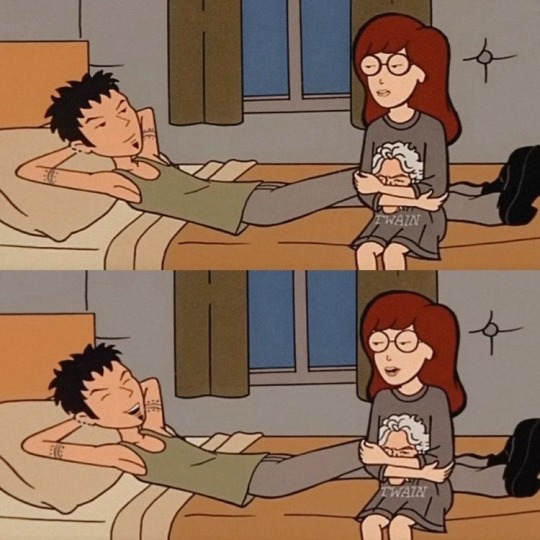
ship of the century <3
#daria icons#daria morgendorffer#daria mtv#daria#trent lane#girl blogger#girlblogging#coquette grunge#coquette#tumblrgirl#artist#lana del rey#literary fiction#fairy grunge#grunge#fiona apple#faunlet#emo girl
337 notes
·
View notes
Text
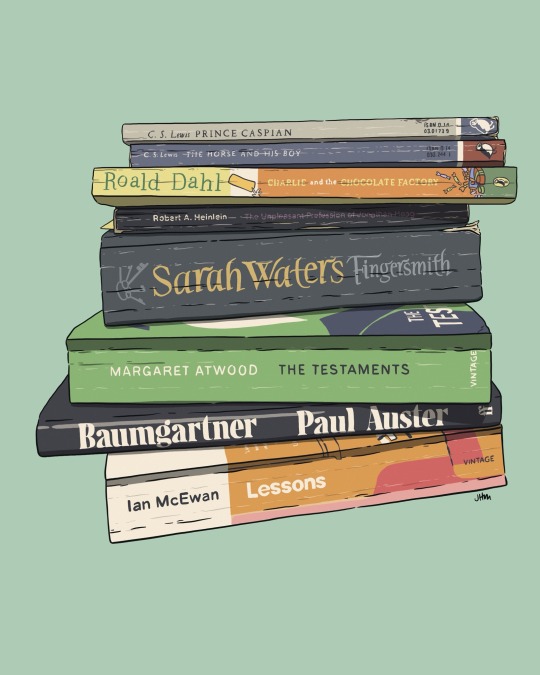

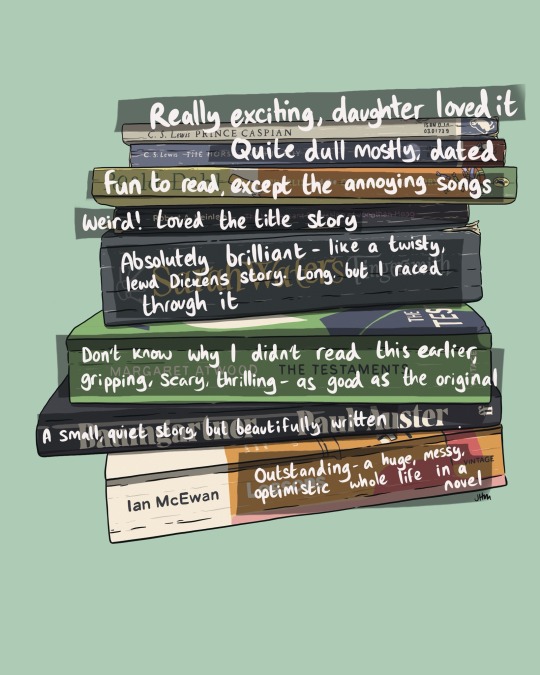
Book read in January 2024- a good month!
If I had to pick a fave, I’d say Lessons, but The Testaments and Fingersmith were brilliant too.
Reading through the Narnia series again has been fascinating, especially as I never realised how different the publication order and the suggested reading order are. I didn’t realise that the best 3 (The Lion, the Witch and the Wardobe / Prince Caspian / Voyage of the Dawn Treader) were written in that order, rather than being the 2nd, 4th and 5th.
Lots of dated stuff though, wow. It is very funny that horrible cousin Eustace is implied to be so rotten because of his parents, who do things like sending him to a school with no corporal punishment, bringing him up vegetarian and saying that boys and girls should be treated equally. He is a little creep though.
Instagram / Shop
#my art#artists on tumblr#books#booklr#illustration#bookstack#paperbacks#fantasy books#narnia#roald dahl#fingersmith#margaret atwood#literary fiction
174 notes
·
View notes
Text
Some books lose their charm after the first read, but with Donna Tartt, the more you read it, the better it gets.
Yes, this is your sign to reread the secret history and the goldfinch.
She truly puts her whole donnussy (sorry i hate myself too) into those books every 10 years.
#darkacademia#dark academia#literature#the secret history#the goldfinch#donna tartt#literary fiction#literature degree#english major#books#book
58 notes
·
View notes
Text

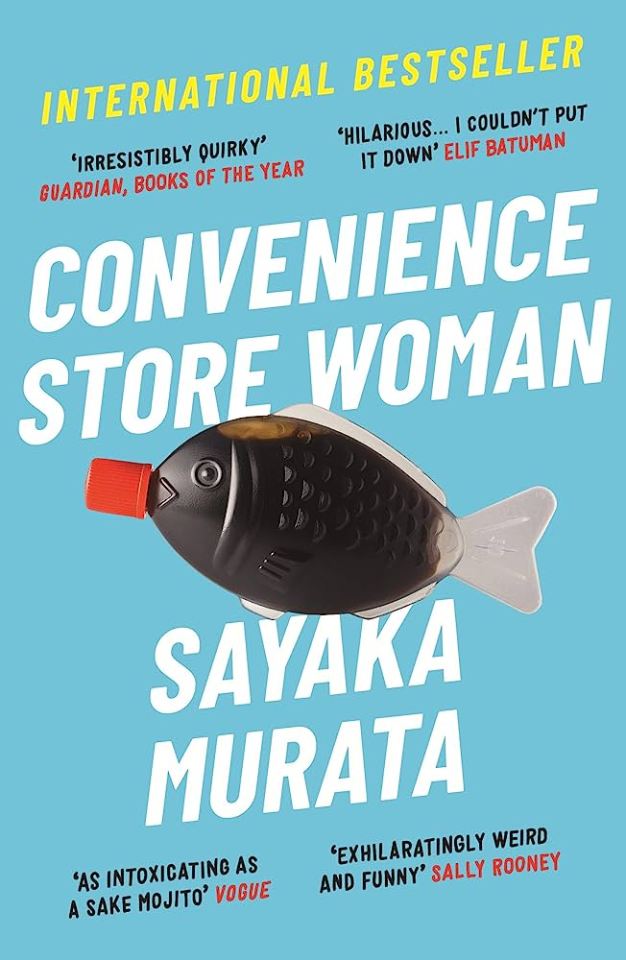
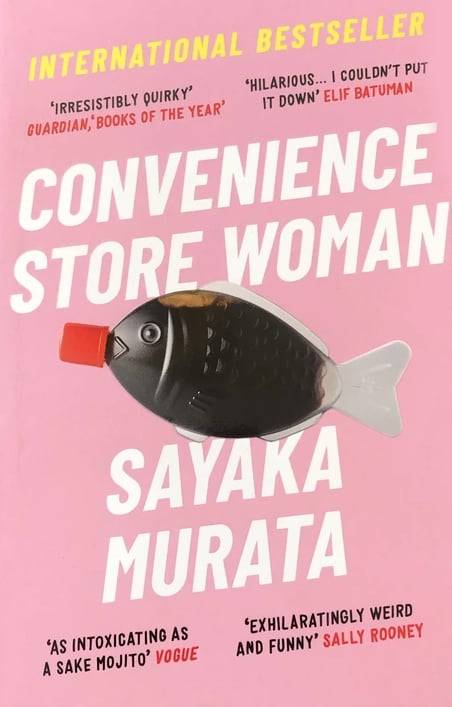
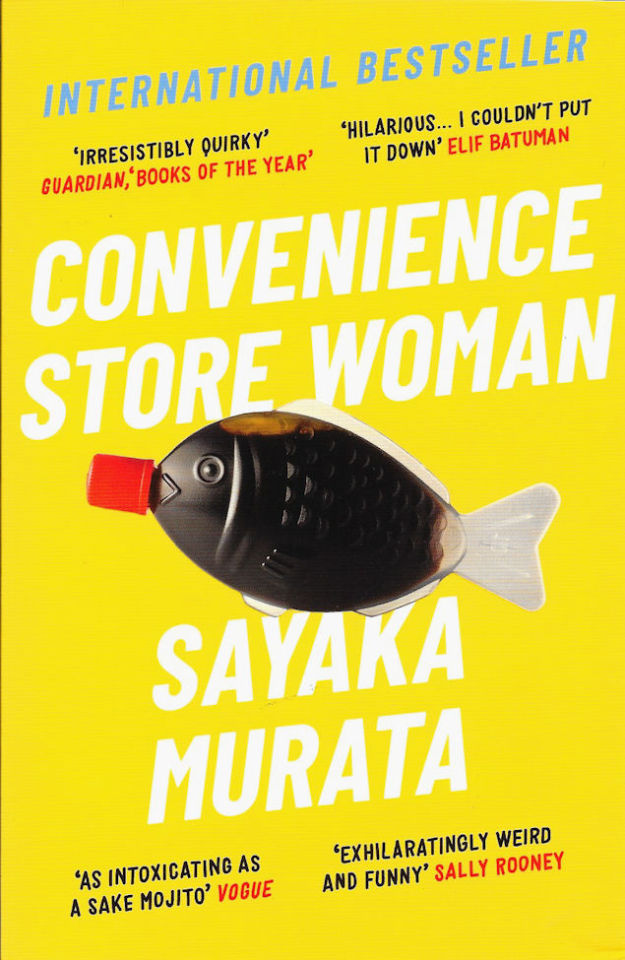

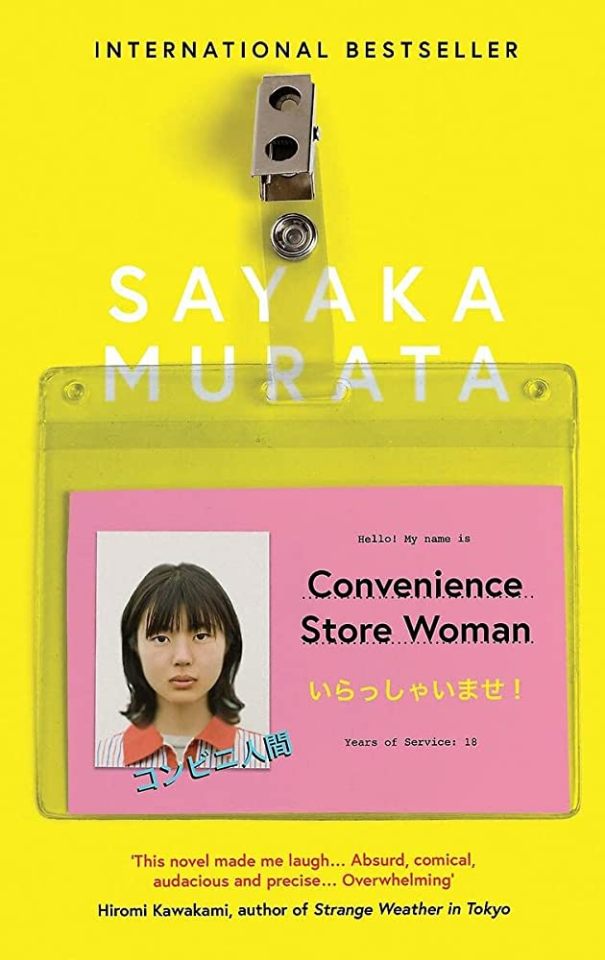
Kinda wanna collect all the covers, not going to lie to you.
241 notes
·
View notes
Text
I am once again calling for book rants. It was so much fun the last time, and I crave more.
Do you have a long standing grudge against a book you read in middle school? Have you gotten swept up by hype only to find that everyone lied to you and the book is trash? Do you burn with rage over the way an author portrayed your favorite mythology or folklore? Is there a book or series that you once loved, but now makes you cringe every time you think about it?
Do you want to vent all of it out to someone who won't judge you, or argue with you, but will simply accept all your feelings as their own?
Hi, that person is me. Send me an ask, anonymous or not, and tell me everything you've wanted to say. Offer me your anger, your frustration, your hatred. I will hold it for you. I will take it into my heart and make it my own.
It can be any genre you want, any demographic. I will accept it all. Even if James Patterson gets involved again. (I'm not scared of you, James!!)
#literature#books#ya fiction#ya fantasy#ya dystopia#fiction#Reading#middle grade books#adult fantasy#science fiction#fantasy#literary fiction
181 notes
·
View notes
Text


19/03/24
Nothing that is worth knowing can be taught - O.W (our lord and saviour)
#academia aesthetic#chaotic academia#classic academia#dark acadamia aesthetic#dark academism#old aesthetic#romantic academia#soft academia#books & libraries#light academia moodboard#bookaholic#book quotes#booklr#books#bookblr#literary fiction#literary quotes#libros#literature#lit#light academia
49 notes
·
View notes
Text
"Your worst sin is that you have destroyed and betrayed yourself for nothing."
– Fyodor Dostoyevsky, Crime and Punishment.
#literary fiction#literature#literature quotes#quotes#dark academia quotes#book quotes#dark academia#literacy#quoteoftheday#classic literature#books and literature#literary quotes#books and libraries#fyodor dostoyevsky#life quotes#books quotes#poems and quotes#book quote#beautiful quote#quote of the day
3K notes
·
View notes